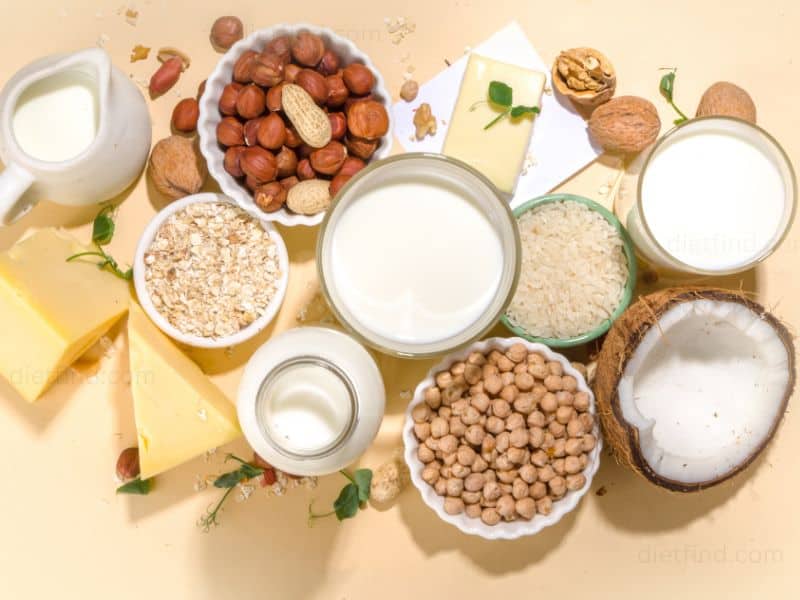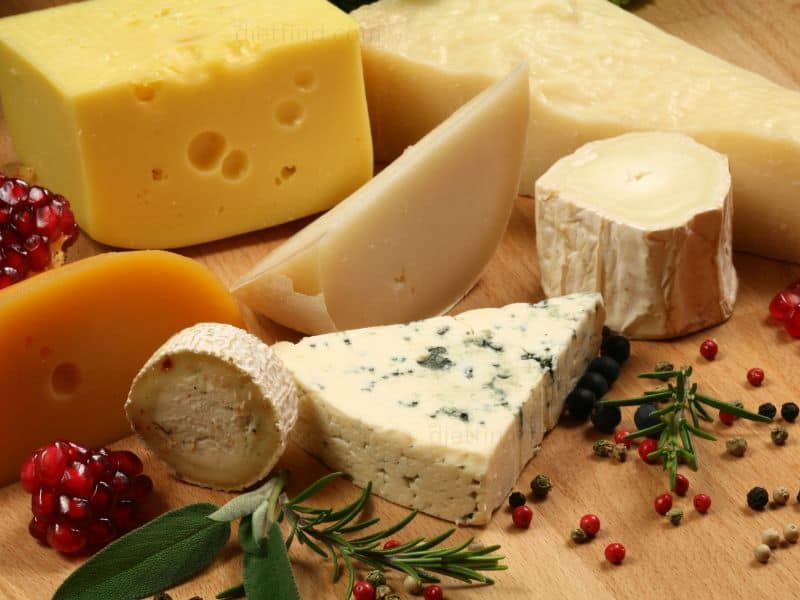Can Vegans Eat Cheese? Understanding the Vegan Diet
The age-old question many newcomers to the vegan diet often ponder: Can vegans eat cheese? To answer this, we must first delve into what the vegan diet truly entails and the rationale behind its choices.
What Defines the Vegan Diet?
When we talk about the vegan diet, it’s essential to understand its core principles. The vegan diet is more than just a diet; it’s a philosophy and a lifestyle choice. At its heart, veganism seeks to avoid the exploitation and cruelty to animals for food, clothing, or any other purpose. This means that vegans exclude all animal products from their diet – not just meat but also eggs, dairy, and even honey.
Cheese: A Dairy Product
Now, when it comes to cheese, it is predominantly a dairy product. Traditionally, cheese is made using milk from cows, goats, or sheep. The milk is then curdled using an enzyme called rennet, which often comes from the stomach lining of slaughtered calves.
So, if we’re looking purely from the perspective of the vegan diet, the answer is clear: traditional cheese is off the menu.
Is Cheese Bad for You? Exploring the Nutritional Landscape
A beloved food item for many and a staple in numerous cuisines worldwide. But, like many foods, cheese is complex. When we delve into the health aspects of cheese, it’s not a straightforward “good” or “bad.” Let’s break it down.
Nutritional Benefits of Cheese
- Rich in Protein: Cheese is a good source of protein, which is vital for muscle repair, immune function, and overall growth.
- Calcium Galore: Known for its calcium content, cheese can be beneficial for bone health. Calcium is essential for strong teeth, bones, muscle function, and even nerve signaling.
- Vitamin and Mineral Treasure Trove: Beyond calcium, cheese contains a variety of vitamins and minerals. These include vitamin A, B vitamins (especially B12), phosphorus, and zinc. Some cheeses, like Swiss cheese, even contain small amounts of vitamin D.
Potential Concerns with Cheese Consumption
- High in Saturated Fat: Many cheeses, especially the creamier varieties, are high in saturated fats. Consuming too much saturated fat can raise LDL (bad) cholesterol levels in the blood, increasing the risk of heart disease.
- Calorie-Dense: If you’re watching your calorie intake, cheese can quickly add up. It’s easy to consume more than you realize, especially when it’s melted on pizza or layered in a sandwich.
- Sodium Levels: Some cheeses, like feta or blue cheese, are high in sodium. Excessive sodium intake can lead to high blood pressure and other cardiovascular issues.
- Lactose Issues: Many people are lactose intolerant, meaning they have difficulty digesting lactose, the sugar found in milk and dairy products, including cheese. For these individuals, consuming cheese can lead to digestive discomfort.
Moderation is Key
Like many foods, the key to cheese is moderation. Consuming cheese in moderate amounts can allow you to enjoy its nutritional benefits without overloading on calories, saturated fat, or sodium.
Moreover, the type of cheese matters. For instance, opting for cheeses that are lower in fat or sodium, or choosing those made from grass-fed cows (which can have a more favorable fatty acid profile), can make a difference in the health equation.
Individual Needs and Preferences
One’s relationship with cheese can also depend on individual health concerns or goals. For someone with high cholesterol, watching cheese intake might be more crucial. On the other hand, for a vegetarian seeking more protein sources, cheese could be a valuable addition to their diet.
In the context of the vegan diet, these considerations take on a different hue. Vegan cheeses offer an alternative, often with different nutritional profiles. While some vegan cheeses might be lower in saturated fat, they might also be lower in protein or calcium. As always, reading labels and understanding what you’re putting into your body is vital.
To sum it up, cheese, like many foods, comes with both benefits and concerns. Understanding these and making informed choices based on individual needs is the best approach.
But Wait, There’s Vegan Cheese!
Here’s where things get exciting. Just because traditional cheese is made from animal milk doesn’t mean that vegans can’t enjoy the rich, creamy goodness that cheese offers. Enter vegan cheese.
Vegan cheese is made using a variety of plant-based ingredients. From nuts like cashews and almonds to soy, coconut oil, and even certain root vegetables, the world of vegan cheese has expanded dramatically over the past decade. These cheeses aim to replicate the texture, taste, and meltability of dairy cheeses.
For instance, you might be at a dinner party, and someone offers you a slice of pizza with gooey, melty cheese on top. At first glance, you’d think, “That’s not for me; I’m on a vegan diet.” But, with the rise in popularity of vegan cheeses, that pizza slice could very well be vegan-friendly!

Nutritional Aspects of Vegan Cheese
Switching gears a bit, let’s talk nutrition. Some people are drawn to the vegan diet for health reasons. They’ve heard about the potential benefits, including weight loss, improved heart health, and even a reduced risk of certain cancers. But, how does vegan cheese stack up nutritionally?
In terms of calories and fat, vegan cheese can be quite similar to dairy cheese. However, it’s essential to read the label. Some vegan cheeses are made with healthier, whole-food ingredients, while others might contain a list of additives or processed oils.
Another thing to consider is calcium. Dairy cheese is a known source of calcium. However, vegan cheeses might not naturally contain this mineral. Some brands fortify their products with calcium, but again, it’s essential to check the label.
Ethical and Environmental Considerations
Beyond nutrition, many people choose the vegan diet because of ethical or environmental reasons. The dairy industry, like the meat industry, has its share of controversies. Concerns range from the treatment of animals to the significant environmental footprint associated with dairy farming.
Vegan cheese, on the other hand, can be a more sustainable choice. Producing plant-based cheeses generally requires less water, and land, and produces fewer greenhouse gas emissions than traditional dairy cheese. So, if you’re someone who’s concerned about the planet’s well-being, opting for vegan cheese aligns well with those values.
Taste and Texture – Does Vegan Cheese Measure Up?
For many, the switch to vegan cheese comes down to one crucial factor: taste. I remember the first time I tried vegan cheese. My initial thought was, “This is different!” But, as I explored various brands and types, I realized that the world of vegan cheese is vast and diverse. Some vegan cheeses are perfect for melting on pizzas, while others are great for slicing and putting on crackers.
It’s true; some people find the taste of certain vegan cheeses to be an acquired one. But with so many options available today, there’s likely a vegan cheese out there that will tickle your taste buds.
In Conclusion
So, can vegans eat cheese? Traditional dairy cheese, no. But thanks to the innovation in the food industry, there’s a plethora of vegan cheese options available for those following the vegan diet. Whether you’re motivated by health, ethics, or the environment, vegan cheese is a delicious and versatile alternative that aligns with the core principles of veganism.
References:
Thecheesemaker 1. What Kinds of Cheese Can Vegans Eat? – TheCheeseMaker.com
The most common types of vegan cheeses are cheddar, gouda, parmesan, mozzarella, and cream cheese that can be found in non-dairy forms. There …
Veganfoodandliving 2. Do vegans eat cheese? Why you should ditch dairy right now
Vegans do not eat cheese or any other dairy products because they are derived from animals. Dairy products involve the exploitation of animals …
Yupitsvegan 3. An Introduction to What Vegans Eat
A vegan diet excludes animals and their byproducts. That means that vegans do not eat meat, poultry, fish, eggs, milk or other dairy products, or honey. Vegans …
Godminster 4. Is cheese suitable for vegetarians? – Godminster
A vegan cheese will be 100% animal-free and created with vegetable proteins such as soy and vegetable oils, so a cheese made using milk or other …
Plantpoweredyou 5. Do Vegans Eat Cheese? (A Vegan Dietitian Explains) – Plant Powered You
Do vegans eat cheese? No. Cheese comes from a cow, and vegans do not eat animals or products derived from animals. Why is there confusion?
© 2023 by DietFind.com. All rights reserved. No part of this document may be reproduced or transmitted in any form or by any means, electronic, mechanical, photocopying, recording, or otherwise, without prior written permission of DietFind.com.

